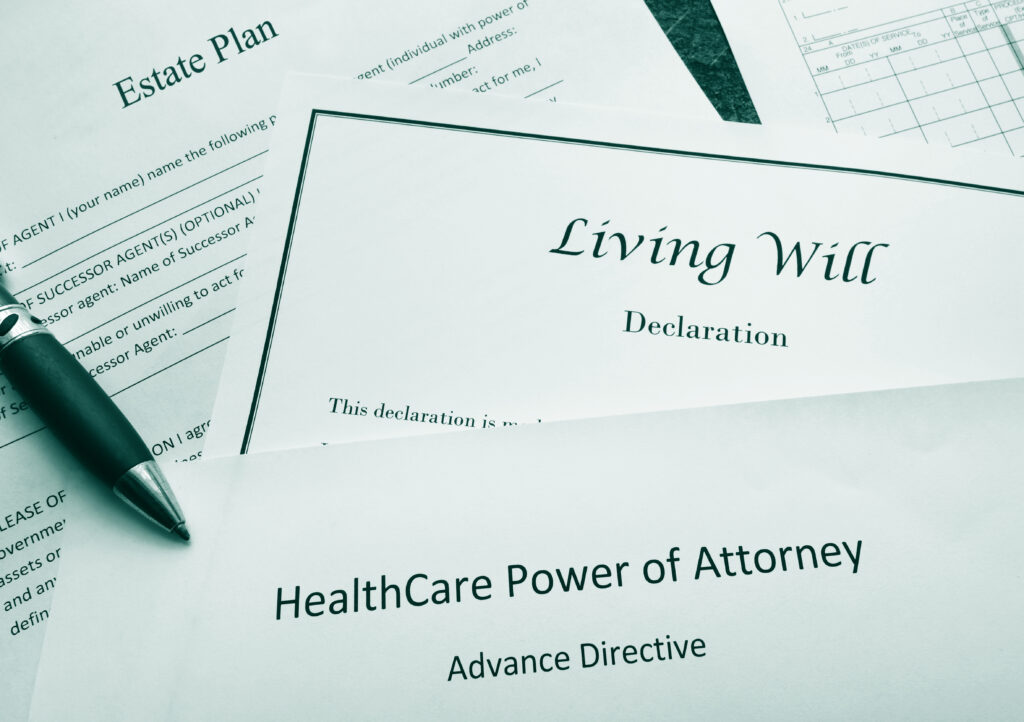Making a will seems intimidating. It can be costly and complex. However, when someone dies without leaving a will, there’s a mess left behind. Settling an estate when there is not a valid will, however, requires a lengthy process of going through probate court. It’s a huge burden for the loved ones left behind to handle while dealing with grief and managing other end-of-life arrangements. Making an online last will and testament is a good alternative for many people.
“We created our service because of our own difficulties in getting our wills written,” says Tim Hewson, co-founder and president of LegalWills. “One day after work, there were 15 of us around the table and somebody mentioned that they needed a will but didn’t have one. It turned out that none of us had a Will even though all of us knew it was important. We looked for a more convenient approach, and nothing existed, so my co-founder and I set out to fix the issue.”
This guide is not meant to serve as legal advice but to provide an overview of the options for making a valid will online. Online services simplify the process of making a will; an online last will and testament is an affordable and accessible way to create a legally binding, valid last will and testament. testament; see our reviews here. Our top recommendation is Trust&Will as the most reliable service for online will making that offers several flexible plans depending on the user’s needs. We also recommend US Legal Wills as a fast and reliable budget-friendly option.
Table of Contents
- Why Make an Online Last Will and Testament?
- Who Should Make an Online Last Will and Testament?
- Types of Wills and Other End-of-Life Documents
- How to Create an Online Last Will and Testament
- What to Look for in an Online Will Service
- Special Considerations for an Online Last Will and Testament
Why Make An Online Last Will and Testament?

What Is A Will?
A will is a document explaining what should be done with a person’s estate after their death. There are different types of wills based on the provisions included, but they all serve the same purpose: to state clearly what should happen to the estate, to establish guardianship, and to name an executor to ensure that the will is carried out.
The estate is all of an individual’s assets; combined, these assets make up the person’s net worth. Assets include physical belongings, land, real estate, investments, and intangible assets. A will is a legally binding document which allows the person writing—the testator—to designate how their estate should be handled. The testator can choose how to divide up their property, give gifts, designate who should receive family heirlooms, and name an executor for the estate.
Why Do You Need a Last Will and Testament?
Without a will, you don’t get a say in what happens to the things and people you care about after your death: who will take care of your pets, who gets the family heirlooms you’ve cared for, or who will be guardian for your children (should they still be minors) or pets. All of this will be decided according to state intestacy laws.
Decide How to Distribute Belongings
“Every capable adult American should have a will; it is especially critical as we age,” explains Mary Kate D’Souza, Chief Legal Officer at Gentreo. “A will is an opportunity to express who should benefit from your hard-earned assets and to appoint your choice to manage your estate. Absent a will, the court appoints an administrator to manage your assets. If there is conflict among your loved ones, most often the court will appoint a neutral professional that could cost your estate thousands of dollars.”
It’s not shallow to care about what happens to your property. It is considerate and caring to have an organized, documented, legally binding plan so that others do not have to make those decisions for you, based on what they think you might have wanted.
Prevent Family Conflicts
Dealing with a family member’s death is difficult enough. When there is no will left behind, the family also has to deal with a big mess of sorting out the estate. The process will go to probate court, which can take months to resolve. In the midst of grief, it’s easy for the discussions which are part of this process to become conflict, causing arguments and pain in the midst of a difficult time.
Relieve Loved Ones from Legal Delays
Without a will, it can take months for property to be legally transferred when there is no will. Probate court is often part of the estate settling process; with a will it can move along quickly. Without a last will and testament, the probate court will appoint an executor for the estate, appoint guardians, and distribute property to remaining family members according to state laws of intestacy. All these things take time.
Who Should Make an Online Last Will and Testament?
It’s important to know that an online last will and testament is not a good choice for everyone. Online wills are created from fill-in-the-blank templates; they are not set up to handle complex or specialized estate plans.
“For anything beyond simple, you should go with an attorney,” says Anthony S. Park, a probate attorney and executor of other 100 estates. […]
Types of Wills and Other End-of-Life Documents

Are There Different Kinds of Wills?
An online last will and testament designates, in a legally binding way, what should be done with the estate of an individual after their death. While each will is specific to the person making it (the testator), the essential purpose and requirements are the same. Various provisions are included in a will depending on the estate and how the testator wants to distribute their property.
A written and witnessed will, created and finalized according to federal and state laws, is a very important document. Other types of wills–holographic and nuncupative–have limitations and may not be considered valid:
- A holographic will is a will that is handwritten by the testator. A holographic will may or may not be signed by witnesses. A holographic will is considered acceptable in some states, depending on the circumstances of the testator’s death. Holographic wills generally have limits set by state statutes, and are often held up in probate court until they are proven to be valid.
- A nuncupative or oral will is a will that is spoken by the testator, or created as a video recording. A nuncupative will may be considered valid in some states under some specific circumstances.
Other End-of-Life Documents
A will is not the same as a living trust. A living trust is a legal document, or trust, which is set up to manage an estate while the estate owner is still living. A trustee is named and is responsible for overseeing the trust for the sake of future beneficiaries. A living trust also includes instructions on how the trust should be distributed after the owner’s death.
A will is very different from other documents which may be part of end-of-life planning. For example, an online last will and testament is the right document for designating inheritors; it is the wrong place to put funeral instructions. “Wills are an incredibly important piece of the process, but not the only piece to consider in end-of-life planning,” explains Liz Eddy, founder of Lantern. “There are many other elements to an end-of-life plan that are critical, and oftentimes the most challenging parts for family.”
Other important end-of-life documents:
- Advance directive: This document may also be called a healthcare directive or a living will. An advance directive designates the type of medical care and intervention that an individual wants or does not want, in the event that they are incapacitated or unable to communicate their wishes.
- Guardianship papers: In many cases, guardians for minor children or for pets are named in a will. However, it is also possible to create separate, legally binding guardianship papers.
- Funeral instructions: Often, communicating preferences for funeral procedures and after-death decisions can be done with a simple conversation. However, it’s wise to write these requests down so that family members have clear instructions to reference.
“These are documents not related to your assets but related to your choices for medical care and life-sustaining treatment at the end of life. It is important that you document your preferences so that you receive the care that you want,” says D’Souza. “Your loved ones are relieved of the burden of making heart-wrenching decisions and you are assured that your wishes are upheld.”
How to Create an Online Last Will and Testament

How Do I Write a Will?
When it comes to creating a valid will, it’s no wonder we get confused. Movies and stories show everything from fountain pens dripping over handwritten parchments to scribbled instructions on a napkin to tearful instructions spoken at the very moment of death. None of these scenarios are quite right. Creating an online last will and testament is, for the most part, a simple and drama-free process.
To create a will online, you can use a state-specific template which helps you to fill in the information needed for a valid, legal will. It is important to use a will that is formatted specifically for the state in which the testator lives. While there are many similarities in state statutes, there are some key differences.
How Do I Finalize a Will?
Once the online last will and testament is completed, the testator needs to finalize the will in order to make it legally binding. “Any document prepared on our service must be downloaded and printed, and then signed in the presence of two witnesses,” says Hewson. “As long as this final step is taken it is a legal document. All of the paths through our service were signed off by estate planning attorneys, and we keep up-to-date on any law changes.”
In most states, the witnesses must watch the testator sign the will, and the testator must watch as the witnesses sign the will. Attaching a notarized self-proving affidavit, with the signatures of the testator and witnesses, is an acceptable way to validate a will in most states, but not in all states. See the guidelines for your state to ensure that the will is finalized in the correct way.
How Do I Update an Online Will?
It is important to regularly review and update the will. Your online last will and testament is not a document to make once and never touch again. “You should review all your estate planning documents, including a will, at least yearly,” says D’Souza. “I recommend at least once a year when you are preparing your taxes because you are reviewing all your financial information then anyway.”
With an online last will and testament, you can review and update your will at any time. “This means that you no longer need to procrastinate and wait for that time in your life when things will never change,” says Hewson. “You can write your will today, and update it whenever your circumstances change.”
How Much Does a Will Cost?
The traditional method of creating a will is to work with an estate-planning attorney. The cost of working with an attorney to plan your estate and create your last will and testament is often prohibitive. If you make an online last will and testament, with a reliable service provider, you can get the legal documents for estate planning with a minimum cost in dollars and time. “If you have a fairly simple estate, an online option is really fantastic,” says Eddy. “It’s streamlined, and you can do it fairly quickly.”
The cost of making an online last will and testament varies from free to several hundred dollars. Of course, all online will-making services are not equally reliable. It’s important to use a reliable service which offers an online last will and testament service customized to each state.
How Do I Finalize an Online Last Will and Testament?
Making an online last will and testament is a good alternative for many people. However, your will is not complete or legally binding until it is finalized.
- Follow the specific state guidelines, and
- Complete the process of finalizing the will.
Finalizing a will usually means having the testator and two witnesses sign the printed will, and, depending on the state, having a notarized affidavit attached to the will to validate the signatures of the testator and two witnesses. Some states allow digital-only wills, meaning that e-signatures and online notarization are considered valid. Most states, however, still require a paper copy of the will to be signed and notarized physically.
What Makes a Will Invalid?
A will might become invalid for these reasons:
- The person writing the will (the testator) does not meet the state requirements.
- The witnesses to the will do not meet state requirements.
- The will is not witnessed, or the signatures of the witnesses and testator are not validated.
- The will does not include important provisions.
- The will does not meet specific state guidelines.
What To Look for in an Online Will Service

What Is an Online Will Service?
To make an online last will and testament, you can use a service which has the necessary forms to create a valid will for your state. There is usually a fee, although some services are free. The fee will vary, depending on the options in each document or package. We’ve taken a look at many of the most popular and reliable services for making an online last will and testament; see our reviews here. We recommend Trust&Will as the most reliable service for online will making and US Legal Wills as a fast and reliable budget-friendly option.
What Is the Process for an Online Last Will and Testament?
To make an online will and testament, start with a reliable service, such as USLegalWills. Choose the will template for the state where the testator lives. Before you get started, it’s a good idea to have a few key decisions made:
- Who will be appointed as executor of the estate?
- Who will serve as witnesses to finalize the will?
- How will the estate be distributed to inheritors?
- Are there any special designations for sentimental property, heirlooms, or other parts of the estate?
With these decisions made, the process of creating an online last will and testament can go quickly. Input the information when prompted, save the will, download and print it. Then the will can be finalized with the signatures of the testator and witnesses, and notarized, if appropriate for the state.
Special Considerations for an Online Last Will and Testament
An online last will and testament is not the best choice for everyone. If the estate is very large or complex, or if there are many special considerations, it’s still possible to create an online last will and testament. However, it is wise to consult an attorney for legal advice in estate planning matters. “You may need legal advice or an interpretation of how the law affects your situation,” says Hewson. “For example, if you have a child with special needs and you need to prepare a specific trust for them, then we recommend that you seek legal advice. However, most people do not need legal advice to prepare their will.”
As a caretaker for someone who is preparing their end-of-life documents, you can help by talking through the process. Make sure that the individual understands the different options available, and what might happen if there is no last will and testament left behind. “People are grieving and then trying to make all these decisions with their best guesses,” says Eddy. “That’s a huge burden.” An online last will and testament can be a good solution to simplify the process of making a will, and leave clear instructions behind for the ones you love.